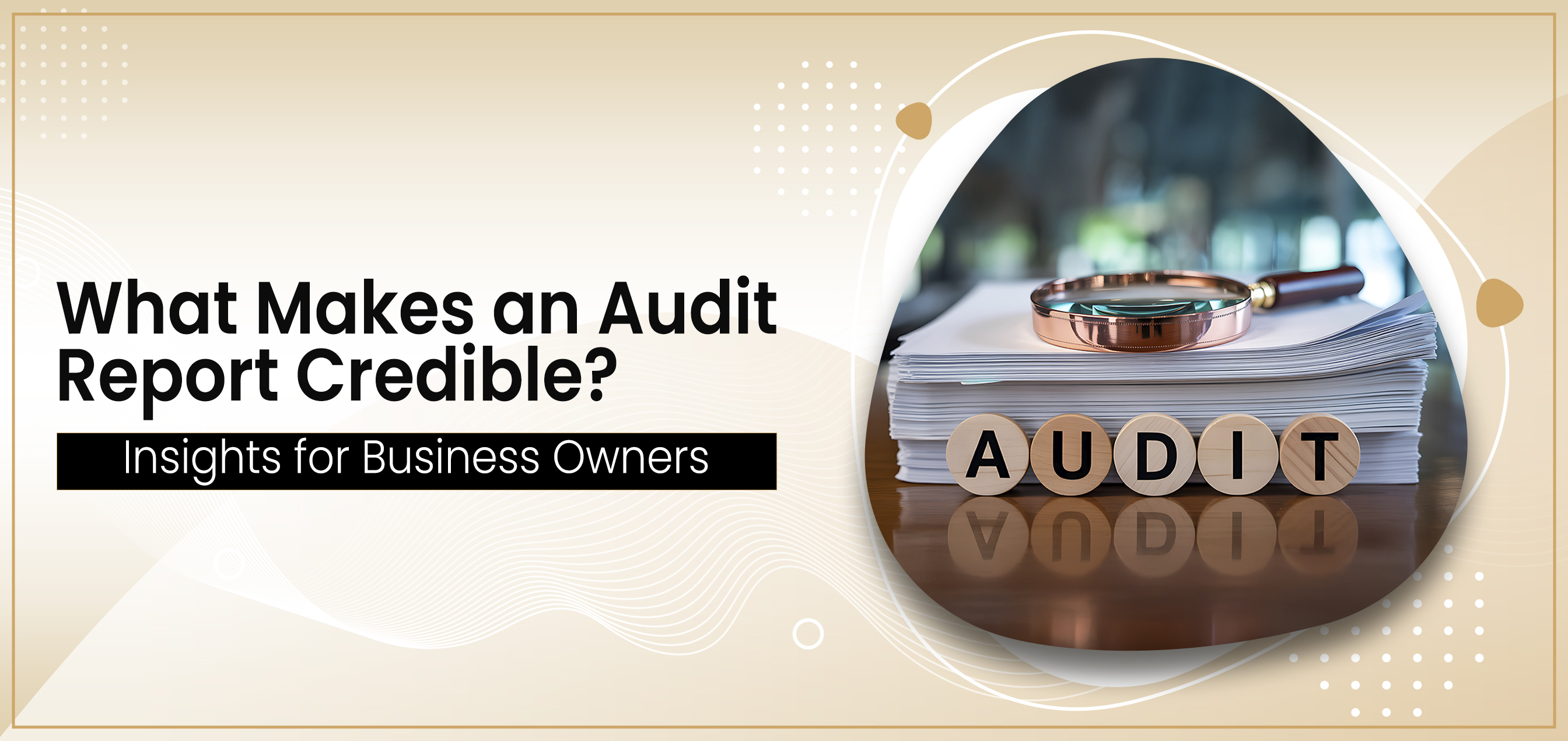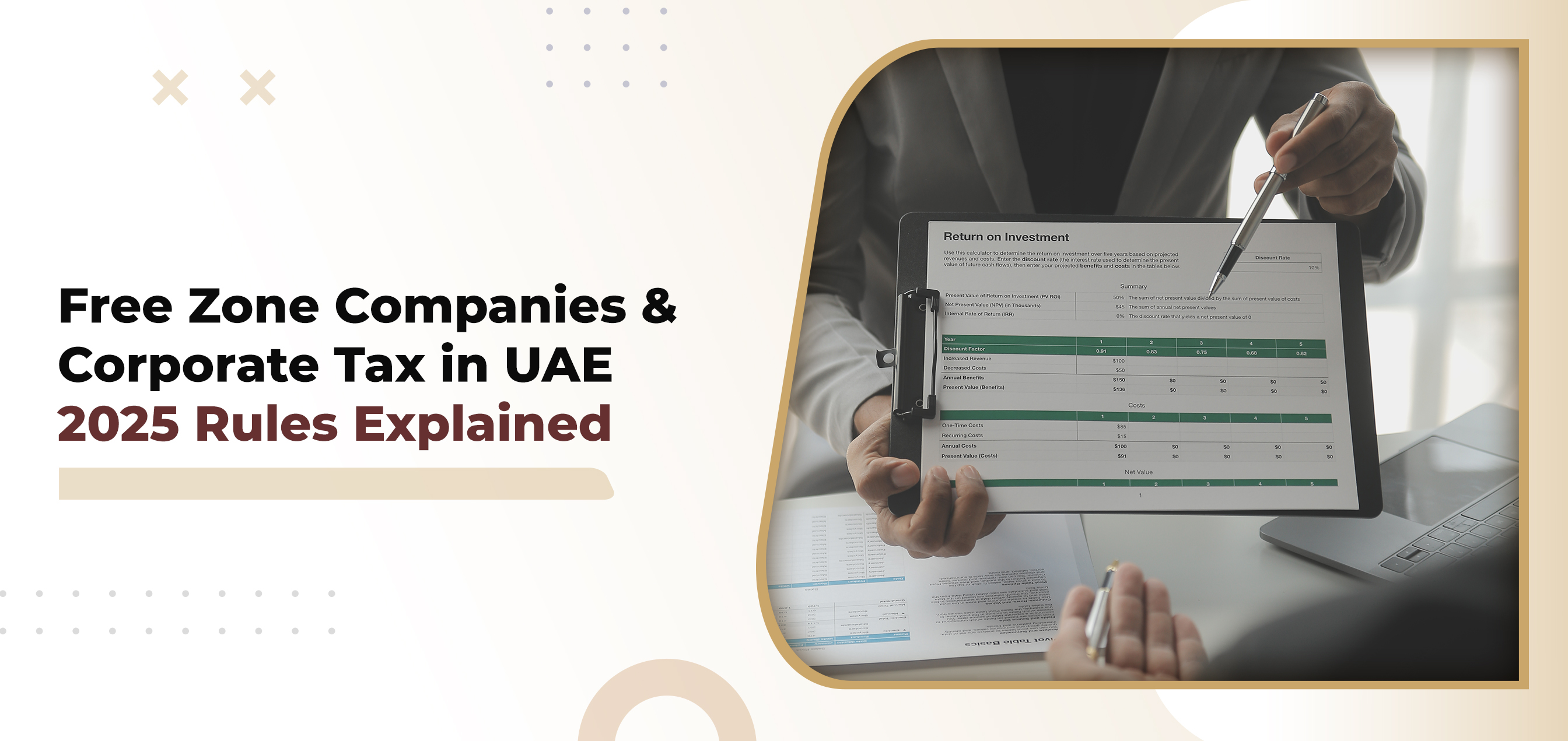
06 Feb 2023
Taxable Person
Any income derived from a business activity by a taxable person is under the scope of corporate tax in UAE. The key determinants of the corporate tax applicability are:
- Tax residency status of the Person earning the income.
- The Source of the income itself.
Step 1: Determine whether you are a “Resident” or not for the purpose of corporate tax in UAE.
A “Resident person” is a Natural/Judicial person that is incorporated or otherwise established or recognized under the applicable legislation of the UAE, including a Free Zone Person or of a foreign jurisdiction that is effectively managed and controlled in the UAE.
Step 2: Classify the income according to the source.
All Income earned by a “Resident” from a business activity, from inside and outside the UAE will be subject to corporate tax in UAE. Whereas for Non-Residents, only the incomed earned/sourced from UAE is going to be taxed in UAE under corporate tax.
These are further discussed in detail below with the conditions applicable in various scenarios.
Corporate Tax base
According to the Decree-Law, a juridical person residing within the UAE is liable for Corporate Tax on taxable income derived from the UAE or outside of the UAE, as a result of a business activity
Non-Residents taxable income include:
- Non-residents' taxable income attributable to their permanent establishment in the UAE.
- An amount derived from the state but not attributable to the non-resident's permanent establishment in the UAE.
- According to the Cabinet decision, taxable income is attributable to the non-resident person's nexus (a requisite contact between a taxpayer and a state before the state has jurisdiction to tax the taxpayer) with the UAE.
State Sourced Income
The Corporate Tax Law established specific rules for determining when income would be considered UAE-sourced.
UAE-sourced income is generally defined as income:
- Derived from a UAE resident person.
- Derived from a non-resident person and is attributable to the Permanent Establishment of that person in the UAE, or
- Derived from activities performed, assets located, capital invested, rights issued, or services provided in the UAE.
As part of the Corporate Tax Law, there is also a list of specific types of income considered UAE-sourced incomes. Again, a fair amount of consistency is found in the list (such as income from the sale of goods in the UAE, income from services rendered, utilized, or benefited from the UAE, income from property in the UAE, income from the use or suitable to use intellectual property in the UAE, etc.).
In particular, the following points should be noted:
- Income from the disposal of shares or capital of a Resident Person can be regarded as UAE-sourced income so that a non-resident may be liable for UAE tax on the income/capital gain resulting from the disposal of shares in a UAE entity.
- A resident person or a government entity may be liable to pay taxes on interest, on loans secured by movable or immovable property in the UAE.
- A special rule applies to insurance and reinsurance premiums where the insured asset is in the UAE, the insured person is a resident, or the insured activity is conducted there.
The Corporate Tax Law has clarified what it considers UAE Sourced Income, which will impact non-residents' activities here.
Permanent Establishment
Corporate tax regimes around the world use the concept of Permanent Establishment as an important principle of international tax law.
According to the UAE Corporate Tax Law, the Permanent Establishment concept determines whether and when a foreign entity has established sufficient presence in the UAE to pay Corporate Tax on its business profits.
In the Corporate Tax Law, the definition of Permanent Establishment was derived from the definition provided in Article 5 of the OECD Model Tax Convention on Income and Capital, as well as from the UAE's position under the Multilateral Instrument to Implement Tax Treaty Related Measures to Prevent Base Erosion and Profit Shifting.
The OECD Model Tax Convention Commentary on Article 5 can be used by foreign persons to determine whether they have a Permanent Establishment in the UAE. A non-resident person's country of residence should be considered when assessing whether a bilateral tax agreement exists between the UAE and their country of residence.
Investment Manager Exemption,
The Corporate Tax Law introduced an Investment Manager exemption to increase the UAE's attractiveness as a leading asset management hub and financial services center.
To determining whether the Investment Manager will establish a Permanent Establishment in the UAE, an Investment Manager (i.e., someone who provides brokerage or investment management services subject to regulatory oversight) is considered an independent agent when acting on behalf of a Non-Resident Person.
This applies to Investment Managers dealing with commodities, real estate, bonds, shares, derivatives, securities, and foreign currencies.
Partners in an Unincorporated Partnership
As a result of the Decree-Law, unincorporated partnerships will not be considered taxable persons unless an application is filed to make them taxable persons, and individuals conducting businesses as unincorporated partnerships are treated as individual taxable persons for corporate tax purposes.
For Corporate Tax purposes, a foreign partnership shall be treated as an unincorporated partnership when it meets the following conditions:
- There is no tax due to the foreign partnership under the laws of the foreign country.
- As and when income is received by or accrues to the foreign partnership, each partner is individually subject to tax on their distributive share.
- In addition, the Minister may prescribe other conditions.
Family Foundation
The Corporate Tax Law recognizes a family foundation, a trust, or similar entities as independent juridical persons with separate legal personalities to manage a family's or an individual's assets. However, certain conditions must be met to qualify a family foundation for UAE Corporate Tax purposes as an unincorporated partnership. Families can use this to ensure a tax-efficient holding structure, proper governance, and succession planning by preventing the income of their foundations and trusts from attracting UAE CT.
Read More: Impact of UAE corporate tax reform on businesses in free zones




